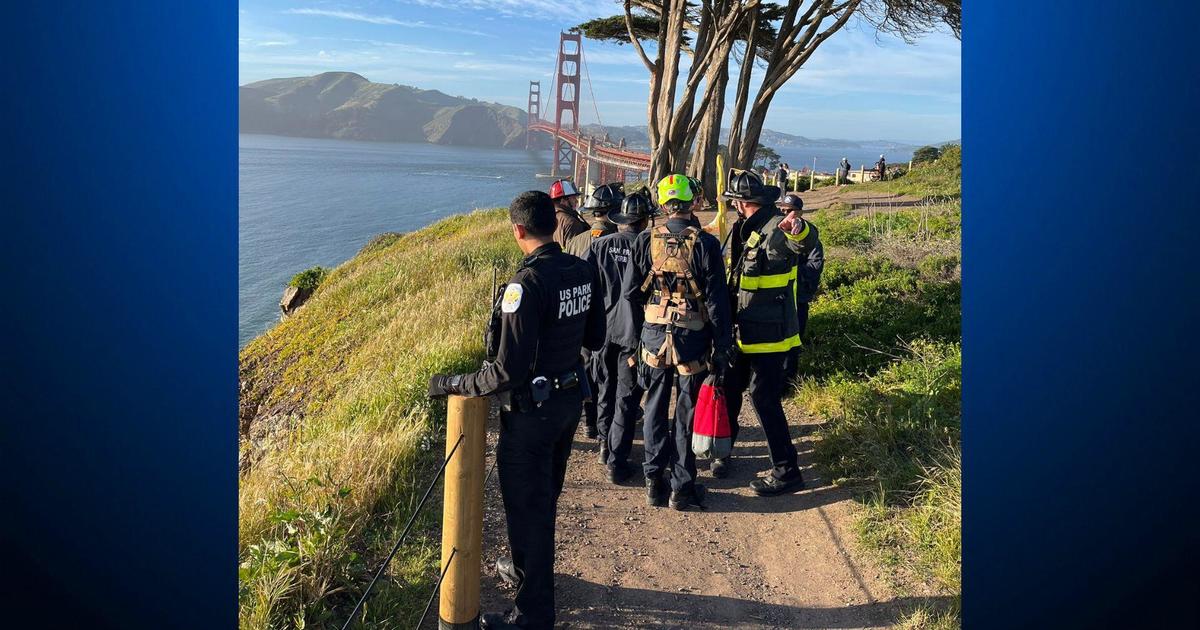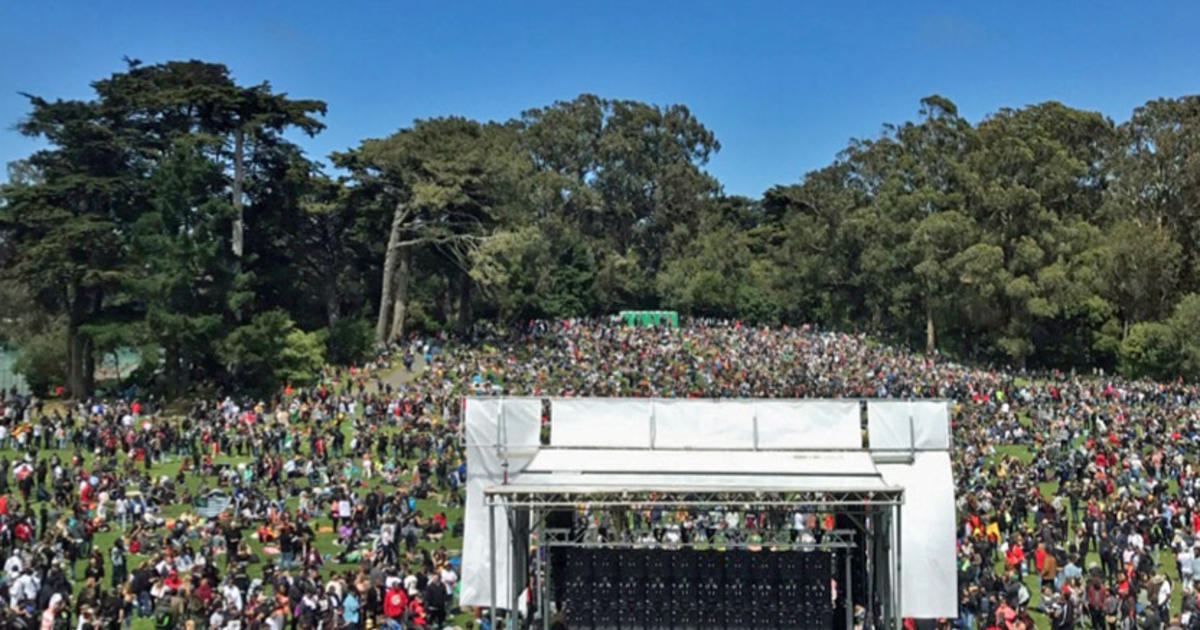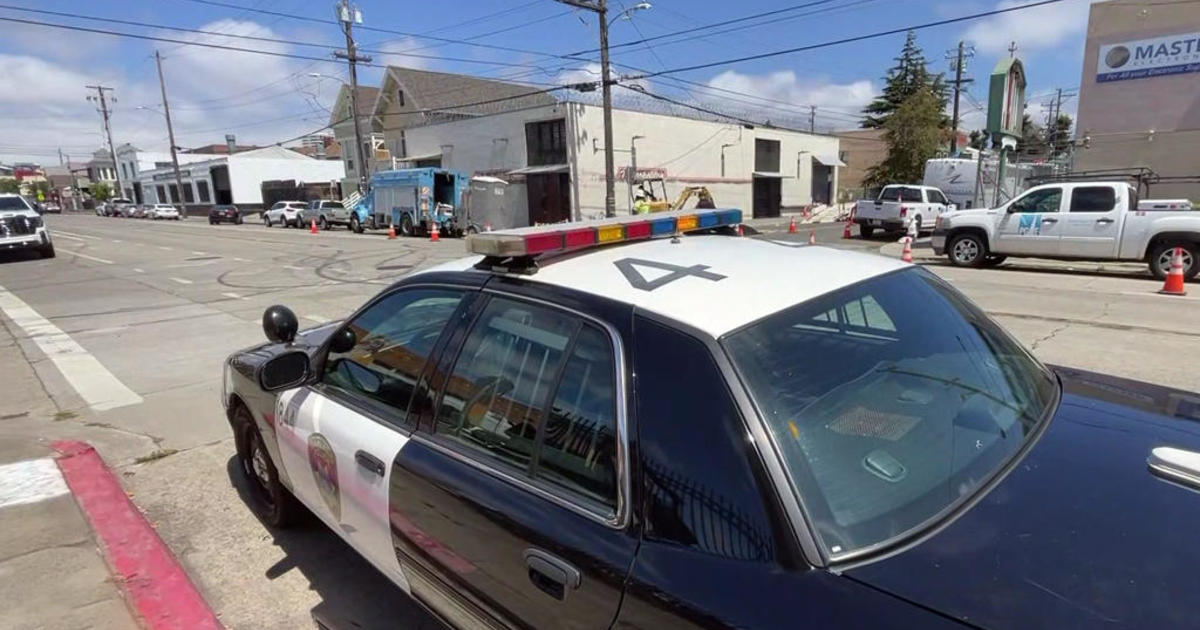Police Transparency Bill Gathers Steam After California Officers Kill An Estimated 211 People Last Year
SAN FRANCISCO (CBS SF) -- A transparency bill is gathering steam after California police killed an estimated 211 people last year, including Mario Woods and Amilcar Perez Lopez in San Francisco.
The death of Woods and Lopez, among others, have led to ongoing protests, marches and even a hunger strike in San Francisco.
Among the top issues of concern to those protestors in California is a lack of police accountability and transparency, but State Senator Mark Leno (D-San Francisco) introduced Senate Bill 1286 earlier this year which could bolster public trust by making information, including administrative hearings about police use of force incidents and a department's handling of police misconduct, a matter of public record.
The estimate of 211 people killed by police in California in 2015 comes from The Counted, an ongoing project by The Guardian to count the killings by law enforcement in the United States. The Counted estimates that 1,145 people were killed across the country last year. California had the highest number of people killed by police in the country.
Leno has stated that the law is necessary because "recent events – such as excessive deadly uses of force, sexual assaults, and other types of police misconduct – have sparked widespread concerns about police accountability."
On Monday, there is scheduled to be a hearing for the bill by the California Senate Appropriations Committee. Last month, the bill passed the Senate Safety Committee's approval, with one dissenting vote, State Senator Jeff Stone (R-Riverside).
Numerous peace officer associations and police unions have expressed their opposition to the bill, as have the District Attorney's Office of Ventura and Orange counties. The Ventura County District Attorney's Office argues that the bill would "give peace officers lesser privacy rights in investigation files than those afforded to murderers, pedophiles, and other criminals" because all evidence in those internal investigations would be a matter of public record.
"The public has a right to know when officers apply deadly force and when serious cases of misconduct have been confirmed. Failing to disclose such important information can fuel mistrust within our communities and threaten public safety," Leno said in a statement following the introduction of the bill in February.
The bill, supported by the American Civil Liberties Union, could remove a veil of secrecy that shrouds California police departments.
Unlike California, states including Texas, Kentucky, and Utah make peace officer records public when that officer is found guilty of misconduct. Ten states make such records public regardless of whether misconduct is found.
Not releasing the records of an officer who has been found guilty of misconduct allows that officer to potentially be hired by another jurisdiction, without that jurisdiction being aware of his or her past misconduct. That means a peace officer found guilty of misconduct could be put to work in the same position somewhere else without the public knowing.
The bill also would give citizens who file misconduct complaints the ability to track those complaints to see what, if anything, the police department did about their complaint.
According to a statement made by the ACLU of Northern California, "SB 1286 is long overdue."
The ACLU and the California Newspaper Publishers Association are co-sponsors of the bill and say the legislation could bring transparency to California police departments.
And many of San Francisco's public officials and community leaders agree, including at least one member of the San Francisco Police Commission.
San Francisco Police Commissioner L. Julius M. Turman said, "Being transparent with the public about proven misconduct of our officers, not mere allegations or claims, is not only in step with modern policing, but it demonstrates a level of respect and openness for our community and their right to know who is serving them."
Turman said the passage of the bill "is necessary to ensure public trust and confidence in our police force."
San Francisco District Attorney George Gascón and San Francisco Public Defender Jeff Adachi also are in agreement that the public needs to be able to determine whether an officer has been disciplined, otherwise they have no idea whether the system of accountability in place, is working.
Gascon said concealing the misconduct records of peace officers "contributes to the feeling that police departments are hiding something – even if they're not - which ultimately adds to the mistrust between police and the communities they serve."
The passage of the bill would loosen a law created in 1978 that made police personnel records strictly confidential.
By Hannah Albarazi - Follow her on Twitter: @hannahalbarazi.



